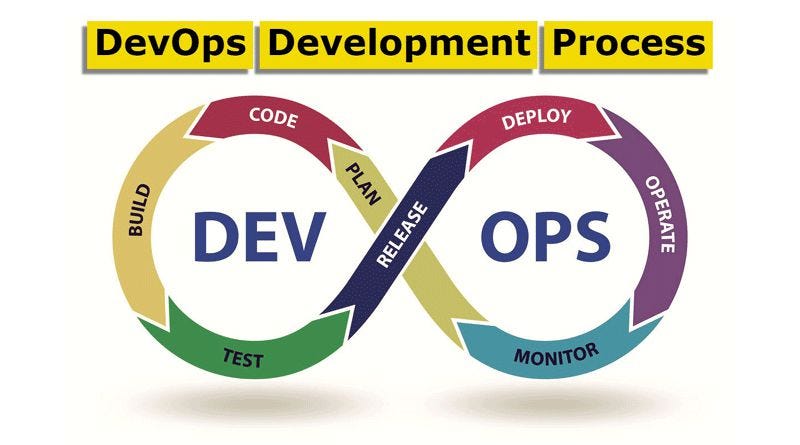
DevOps, a combination of “development” and “operations,” is a set of practices and principles that emphasizes collaboration and communication between software development and IT operations teams. DevOps aims to automate and streamline the software development and delivery process, resulting in faster, more reliable, and more efficient software deployments. In the United States, DevOps services have gained tremendous popularity as organizations strive to stay competitive in today’s rapidly evolving technology landscape. This article explores the significance of DevOps services in the USA https://quema.co/ and how they are transforming the software development and operations landscape.
The Rise of DevOps in the USA:
DevOps practices and methodologies have witnessed exponential growth in the United States over the past decade. Several factors have contributed to this rise:
Increased Competitive Pressure: In the digital age, businesses are under constant pressure to deliver new features and updates to their software applications. DevOps enables organizations to respond quickly to market demands, making them more competitive.
Improved Collaboration: DevOps fosters collaboration between development and operations teams, breaking down traditional silos. This collaboration accelerates the development cycle and enhances the quality of software.
Automation and Efficiency: DevOps automation tools and practices help organizations reduce manual intervention, minimize errors, and achieve consistent deployments. This leads to increased efficiency and reduced operational costs.
Enhanced Customer Experience: DevOps practices enable organizations to release updates and fixes faster, ensuring a better customer experience and satisfaction.
Continuous Improvement: DevOps promotes a culture of continuous improvement through feedback and iterative development. This allows organizations to adapt to changing customer needs and market conditions.
Key DevOps Services in the USA:
DevOps services in the USA encompass a wide range of offerings tailored to the unique needs of different organizations. Some of the key services include:
Consulting and Assessment: DevOps consultants assess an organization’s current processes, identify bottlenecks, and recommend strategies for improvement. They help create a DevOps roadmap and align it with business goals.
Automation and Integration: DevOps service providers offer expertise in selecting and implementing automation tools for building, testing, and deploying software. They also integrate these tools into existing development pipelines.
Continuous Integration/Continuous Deployment (CI/CD): CI/CD pipelines automate the building, testing, and deployment of code changes. DevOps services help organizations establish and optimize these pipelines for faster and more reliable releases.
Containerization and Orchestration: Containers, such as Docker, and orchestration tools like Kubernetes, are integral to DevOps. Service providers assist in containerizing applications and managing container orchestration for scalability and resilience.
Monitoring and Performance Optimization: DevOps services include setting up monitoring solutions to track application performance and infrastructure health. This proactive approach helps identify and address issues before they impact users.
Security Integration: Integrating security into the DevOps process, known as DevSecOps, is crucial. DevOps service providers help organizations implement security measures throughout the development lifecycle to protect against threats.
Cloud Migration: Many organizations are moving their infrastructure and applications to the cloud. DevOps services facilitate a smooth transition to cloud platforms like AWS, Azure, and Google Cloud.
Benefits of DevOps Services:
The adoption of DevOps services in the USA yields numerous benefits:
Faster Time-to-Market: DevOps accelerates the development and deployment of software, allowing organizations to release new features and updates quickly.
Increased Reliability: Automation and testing in DevOps lead to more reliable software, reducing downtime and improving user experience.
Cost Savings: By automating manual tasks and optimizing resources, organizations can lower operational costs.
Enhanced Collaboration: DevOps fosters a culture of collaboration and shared responsibility between teams, leading to better communication and alignment of objectives.
Competitive Advantage: Companies that embrace DevOps gain a competitive edge by responding swiftly to market changes and customer demands.
Challenges and Future Trends:
While DevOps offers significant advantages, its adoption also presents challenges. Organizations must overcome resistance to change, ensure proper training, and manage cultural shifts to fully embrace DevOps practices. Additionally, as technology evolves, DevOps is likely to continue evolving. Future trends may include greater use of artificial intelligence and machine learning in automation, more extensive adoption of serverless computing, and further integration of security into the DevOps pipeline.
Conclusion:
DevOps services in the USA are playing a pivotal role in transforming the software development and operations landscape. Organizations are leveraging DevOps practices to stay competitive, deliver software faster, and enhance the overall customer experience. With the right DevOps services, companies can streamline their processes, improve collaboration, and position themselves for success in an ever-changing technology-driven world. As the DevOps journey continues, the USA remains at the forefront of this transformative movement.







